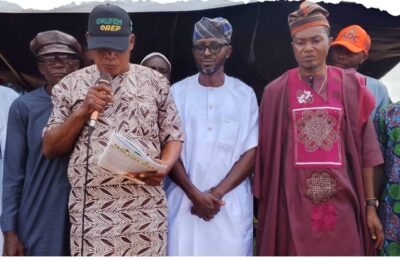Yahaya Bello may never fully repay what he owes Kogi East, but the echoes of political betrayal will resound long after the ink fades from his signature on state documents. History, with its unforgiving memory, has etched his name into a chapter of imbalance and orchestrated exclusion. For the Igala people—the cultural bastion and demographic majority of Kogi State—the debt transcends political arithmetic. It is a moral reckoning, a demand for the restoration of a fractured legacy and the rightful reclamation of power.
Kogi East’s claim is not rooted in sentimentality; it rests on the scales of justice, long tilted by Yahaya Bello’s calculated sidelining of a region that once carried the aspirations of the entire state. The Igala, whose dominion produced the likes of Prince Abubakar Audu, Alhaji Ibrahim Idris and etc, sculpted Kogi’s political foundation, have been reduced under Bello to onlookers in a state they helped birth. Their governorship was swept aside by a tragic twist of fate in 2015, when death interrupted Audu’s comeback. Yet, Bello’s ascendancy—initially viewed as divine interruption—morphed into political punishment.
The debt is multifaceted. At its core is the urgent need for restitution: Bello must support the return of the governorship to Kogi East after Governor Usman Ododo’s tenure. Anything short of this is a perpetuation of injustice cloaked in democratic pretense. For a man whose regime consolidated central power and patronized regional allies, championing Igala leadership would offer a redemptive note in an otherwise divisive legacy.
The economic ledger is no less damning. While Lokoja basked in beautification projects and Central Kogi relished state attention, Kogi East languished in infrastructural destitution. Dekina’s roads crumble into red dust, Ibaji’s arable lands remain underutilized, and Idah’s historical monuments rot in silence. Hospitals operate like glorified consulting rooms; schools lack even the most basic amenities. The region’s commercial arteries were severed, not by war, but by administrative negligence.
Worse still is the ghost of abandoned promises—the most symbolic being the much-hyped bridge project intended to connect Idah in Kogi East to Agenebode in Edo State. Announced with the usual fanfare and praised as a lifeline for regional commerce, the bridge project was little more than political lip service. Today, it remains buried in the graveyard of forgotten ambitions, a skeletal idea without structure, budget, or blueprint. What was touted as a bridge to development has become a metaphor for unfulfilled governance—proof that under Yahaya Bello, vision was often sacrificed at the altar of propaganda.
Perhaps more haunting is the debt of symbolism—of pride diminished and dignity deferred. The Igala language, once elevated, was treated like an inconvenient relic. Festivals, culture, and traditional institutions suffered under a regime that found little use for heritage that did not serve its narrative. Even ceremonial respect for Igala elders dwindled under Bello’s watch, as the age-long bonds between the government and traditional custodians of history frayed.
And there was blood. The 2019 elections, marred by horror in Kogi East, bore witness to unspeakable violence. Ballots were drowned in fire and blood, as in Ochadamu, where a woman was burned alive—her death a metaphor for the region’s torched hope. Youths were silenced by bullets, not votes. Yet, amidst it all, silence reigned from Lugard House.
Bello’s obligation is clear: he must not only acknowledge the region’s pain but advocate for the political rehabilitation of its people. His influence, if wielded for equity, could rewrite the future he once marred. After Ododo, the pendulum must swing East—not out of pity, but out of principle.
This is the debt of leadership: when power is not wielded to unify, it fractures. When it is not shared, it enslaves. Kogi East’s cry is not a tribal lament but a constitutional assertion. They do not ask for dominance, only for the return of balance. If Bello desires history’s kinder judgment, he must lend his voice to this cause.
Kogi East deserves more than apologies. It deserves roads, industry, appointments, and respect. It deserves recognition as a pillar, not a pawn. In the grand narrative of Nigeria’s federated states, justice delayed is not just justice denied—it is history corrupted.
Let no one misread the patience of the Igala people as passivity. A storm brews quietly in the hearts of those who have waited in vain. When the time comes, they will not beg for what is theirs; they will rise and reclaim it.
Thus, the legacy of Yahaya Bello remains suspended in moral debt. And until the East rises again, the balance sheet of justice in Kogi State remains unsettled.
– Inah Boniface Ocholi writes from Ayah – Igalamela/Odolu LGA, Kogi state.
08152094428 (SMS Only)




